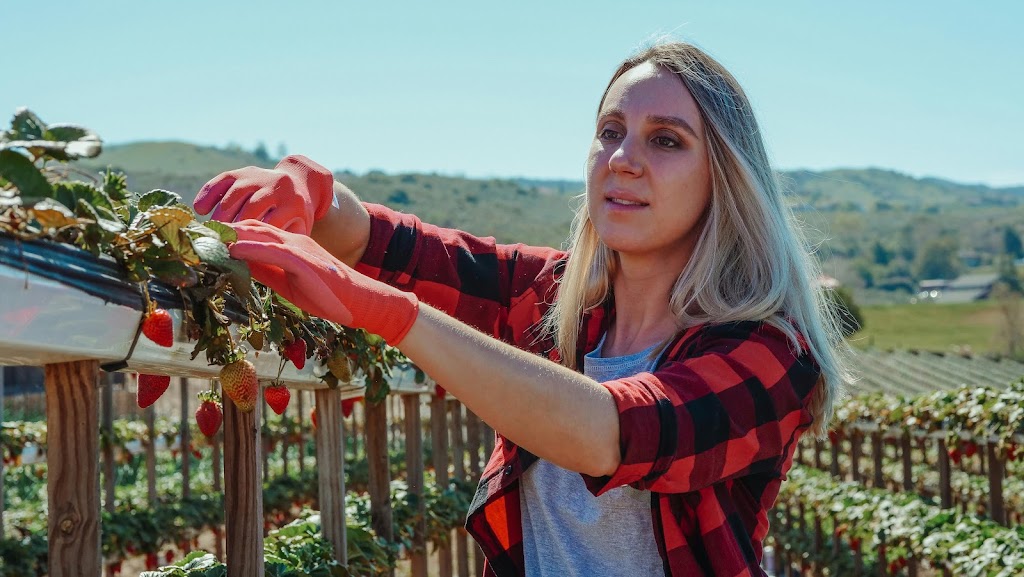Farming, once the backbone of human civilization, is experiencing a resurgence in the modern era. As global challenges such as climate change, food security, and the desire for sustainable practices gain prominence, farming is reclaiming its role as a vital industry. In this article, we explore the significance of farming, its evolving practices, and the manifold benefits it brings to society, the environment, and rural communities.
The Importance of Farming
-
Food Security: Farming lies at the heart of food production, providing sustenance for growing populations. By cultivating crops and raising livestock, farmers ensure a stable supply of nutritious food. They play a critical role in safeguarding food security, reducing dependency on imports, and mitigating the risk of food shortages.
-
Environmental Stewardship: Farming practices have the potential to be a force for positive environmental change. Sustainable farming methods, such as organic farming, regenerative agriculture, and agroforestry, prioritize soil health, biodiversity, and water conservation. By embracing these practices, farmers can mitigate climate change, restore ecosystems, and promote the long-term sustainability of our planet.
-
Economic Development: Farming is a significant contributor to local and national economies. It generates employment opportunities, supports rural communities, and fosters economic growth. By investing in agriculture, countries can reduce poverty, narrow income disparities, and create a thriving agricultural sector that stimulates other industries.
-
Cultural Preservation: Farming preserves cultural heritage and traditional knowledge. It sustains farming practices passed down through generations, connecting communities to their roots and preserving unique agricultural traditions. By valuing and supporting traditional farming methods, we honor the cultural diversity that enriches our world.
Evolution of Farming Practices
-
Sustainable Agriculture: The adoption of sustainable farming practices has gained momentum in recent years. Farmers are embracing techniques that prioritize soil health, minimize chemical inputs, conserve water, and promote biodiversity. Practices such as crop rotation, cover cropping, and integrated pest management reduce environmental impact while maintaining productivity and profitability.
-
Precision Farming: Technological advancements have revolutionized farming through precision agriculture. Farmers now utilize tools such as GPS, remote sensing, and data analytics to optimize resource allocation, improve crop yields, and reduce waste. Precision farming enables farmers to make informed decisions based on real-time data, leading to more efficient and sustainable farming practices.
-
Urban Farming: With the growth of urbanization, urban farming has emerged as a viable solution to address food security and promote local food production. Rooftop gardens, vertical farms, and community gardens in urban areas provide fresh produce, promote green spaces, and foster community engagement. Urban farming reconnects city dwellers with the food they consume while reducing the carbon footprint associated with long-distance transportation.
-
Agri-Tourism: Farm-based tourism, or agri-tourism, has gained popularity as an alternative revenue stream for farmers. It allows visitors to experience farm life, participate in agricultural activities, and learn about food production. Agri-tourism supports rural economies, educates the public about farming practices, and fosters a deeper appreciation for the agricultural sector.
Benefits of Farming
-
Sustainable Food Production: Farming is the bedrock of sustainable food production systems. By adopting sustainable practices, farmers can minimize environmental impact, conserve natural resources, and produce nutritious food for present and future generations.
-
Preservation of Ecosystems: Farming practices that promote biodiversity, protect habitats, and enhance soil health contribute to the preservation of ecosystems. Sustainable farming methods can restore degraded land, increase carbon sequestration, and support the conservation of wildlife.
-
Strengthening Rural Communities: The success of farming is intertwined with the well-being of rural communities. A thriving agricultural sector provides employment opportunities, fosters community cohesion, and sustains local economies. It helps combat rural depopulation and ensures the vitality of rural areas.
-
Education and Awareness: Farming offers a platform for educating the public about the origins of their food, the importance of sustainable practices, and the challenges faced by farmers. By engaging with farming communities, consumers can make informed choices, support local agriculture, and contribute to a more sustainable food system.
Conclusion
Farming is undergoing a transformation, driven by the need for sustainability, food security, and the revival of rural communities. It encompasses a wide range of practices and approaches that prioritize environmental stewardship, economic development, and cultural preservation. By valuing and supporting farming, we nurture a resilient and sustainable future, ensure food security, protect our natural resources, and foster thriving rural communities. Let us celebrate the resurgence of farming and recognize its pivotal role in shaping a better world for all.



